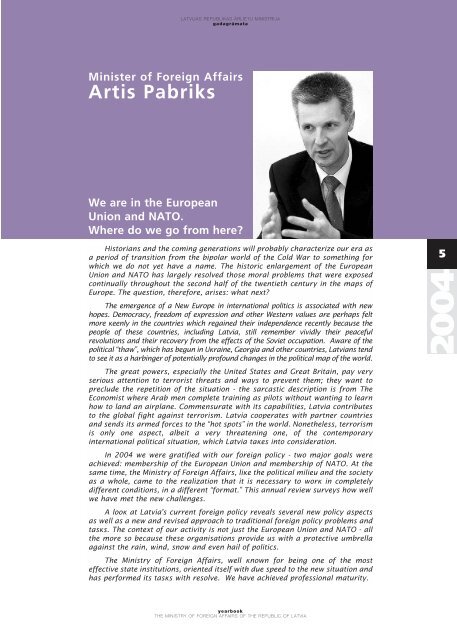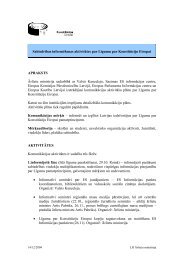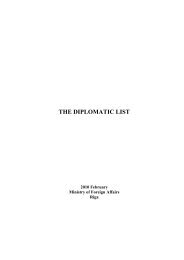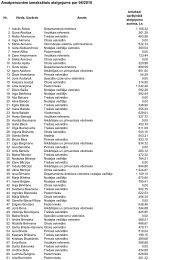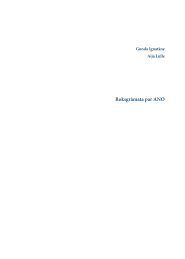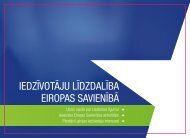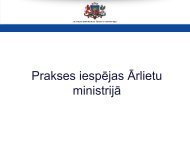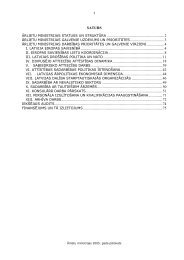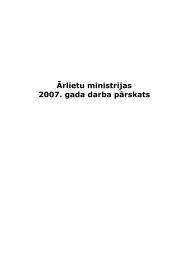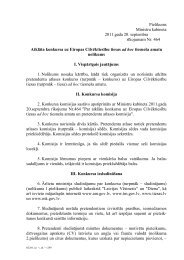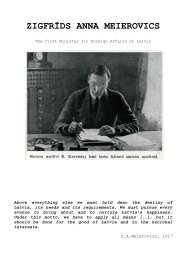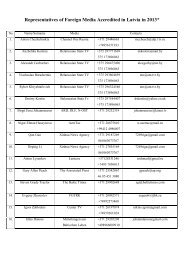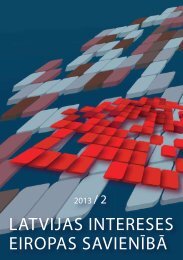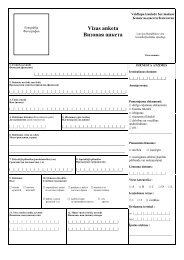Gada Parskats 2004 KOPA - Latvijas Republikas Ārlietu Ministrija
Gada Parskats 2004 KOPA - Latvijas Republikas Ārlietu Ministrija
Gada Parskats 2004 KOPA - Latvijas Republikas Ārlietu Ministrija
- No tags were found...
Create successful ePaper yourself
Turn your PDF publications into a flip-book with our unique Google optimized e-Paper software.
<strong>Gada</strong> <strong>Parskats</strong> <strong>2004</strong> <strong>KOPA</strong> 7/28/05 10:40 Page 5<br />
LATVIJAS REPUBLIKAS ÅRLIETU MINISTRIJA<br />
gadagråmata<br />
Minister of Foreign Affairs<br />
Artis Pabriks<br />
We are in the European<br />
Union and NATO.<br />
Where do we go from here<br />
Historians and the coming generations will probably characterize our era as<br />
a period of transition from the bipolar world of the Cold War to something for<br />
which we do not yet have a name. The historic enlargement of the European<br />
Union and NATO has largely resolved those moral problems that were exposed<br />
continually throughout the second half of the twentieth century in the maps of<br />
Europe. The question, therefore, arises: what next<br />
The emergence of a New Europe in international politics is associated with new<br />
hopes. Democracy, freedom of expression and other Western values are perhaps felt<br />
more keenly in the countries which regained their independence recently because the<br />
people of these countries, including Latvia, still remember vividly their peaceful<br />
revolutions and their recovery from the effects of the Soviet occupation. Aware of the<br />
political “thaw”, which has begun in Ukraine, Georgia and other countries, Latvians tend<br />
to see it as a harbinger of potentially profound changes in the political map of the world.<br />
The great powers, especially the United States and Great Britain, pay very<br />
serious attention to terrorist threats and ways to prevent them; they want to<br />
preclude the repetition of the situation - the sarcastic description is from The<br />
Economist where Arab men complete training as pilots without wanting to learn<br />
how to land an airplane. Commensurate with its capabilities, Latvia contributes<br />
to the global fight against terrorism. Latvia cooperates with partner countries<br />
and sends its armed forces to the “hot spots” in the world. Nonetheless, terrorism<br />
is only one aspect, albeit a very threatening one, of the contemporary<br />
international political situation, which Latvia takes into consideration.<br />
In <strong>2004</strong> we were gratified with our foreign policy - two major goals were<br />
achieved: membership of the European Union and membership of NATO. At the<br />
same time, the Ministry of Foreign Affairs, like the political milieu and the society<br />
as a whole, came to the realization that it is necessary to work in completely<br />
different conditions, in a different “format.” This annual review surveys how well<br />
we have met the new challenges.<br />
A look at Latvia’s current foreign policy reveals several new policy aspects<br />
as well as a new and revised approach to traditional foreign policy problems and<br />
tasks. The context of our activity is not just the European Union and NATO - all<br />
the more so because these organisations provide us with a protective umbrella<br />
against the rain, wind, snow and even hail of politics.<br />
The Ministry of Foreign Affairs, well known for being one of the most<br />
effective state institutions, oriented itself with due speed to the new situation and<br />
has performed its tasks with resolve. We have achieved professional maturity.<br />
5<br />
yearbook<br />
THE MINISTRY OF FOREIGN AFFAIRS OF THE REPUBLIC OF LATVIA


